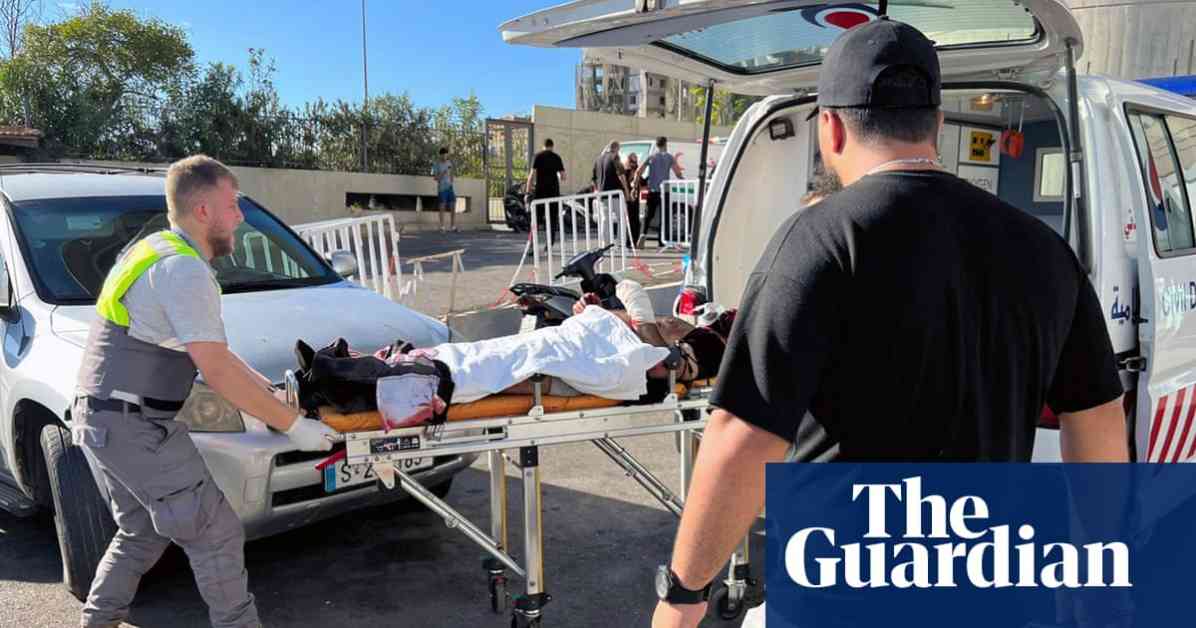Hezbollah Vows Retaliation After Fatal Pager Explosions: 9 Dead, 3,000 Injured
Hezbollah has vowed to retaliate against Israel in the wake of a devastating attack that saw pagers used by its members explode simultaneously across Lebanon, resulting in the deaths of at least nine people and the injury of almost 3,000 individuals. This unprecedented and dramatic assault comes at a time of heightened tensions in the Middle East, with no immediate comment from the Israeli military on the blasts.
Amidst the chaos and devastation caused by the explosions, Lebanon’s health minister, Firass Abiad, revealed the grim toll of the attack, stating that a 10-year-old girl was among the casualties. He further reported that around 2,750 people were injured, with over 200 in critical condition, suffering injuries mainly to the face, hands, and stomach.
The apparent sabotage attack follows a series of targeted assassinations by Israel against senior Hezbollah leaders, escalating an already tense situation in the region. The timing of the explosions coincided with Israel’s decision to broaden the aims of the ongoing conflict to include its fight against Hezbollah along the border with Lebanon, further fueling the flames of conflict between the two sides.
### Retaliation and Threats
Hezbollah wasted no time in issuing a stern warning to Israel, vowing a retaliatory response for the deadly explosions that claimed the lives of two of its fighters. The Lebanese militia group also threatened a “just punishment” for Israel, setting the stage for a potential escalation of hostilities in the region.
The attacks not only targeted Hezbollah members in Lebanon but also inflicted casualties on Hezbollah fighters in Syria, underscoring the far-reaching impact of the violent incidents. Reports indicate that several fighters were injured and some killed in the explosions, highlighting the widespread repercussions of the coordinated assault.
### International Reactions and Concerns
The explosions have reverberated beyond the borders of Lebanon, drawing attention from international actors and raising concerns about the broader implications of the escalating conflict. The United States, a key player in the region, expressed apprehension about the situation, with State Department spokesperson Matthew Miller emphasizing the need for caution and restraint in the face of mounting tensions.
Meanwhile, Hamas, the Palestinian militant group, condemned the attacks as an escalation that would ultimately lead to Israel’s defeat, adding another layer of complexity to the already volatile situation in the Middle East. The international community remains on edge as the conflict between Israel and Hezbollah shows no signs of abating.
### Mossad Involvement and Security Breaches
Speculation abounds about the possible involvement of Mossad, Israel’s intelligence agency, in the coordinated explosions that targeted Hezbollah members. Analysts point to the sophisticated nature of the attacks, suggesting that Mossad may have exploited vulnerabilities in Hezbollah’s communication network to orchestrate the deadly incidents.
The detonation of pagers used by Hezbollah members represents a significant security breach for the militant group, raising questions about the efficacy of its communication protocols and the extent of Mossad’s infiltration. The use of low-tech devices like pagers highlights the challenges faced by Hezbollah in safeguarding its members from targeted attacks by Israeli forces.
### Implications for Regional Stability
As tensions continue to mount between Israel and Hezbollah, the specter of a full-blown conflict looms large over the region. The deadly explosions and the subsequent threats of retaliation have heightened fears of a broader conflagration that could have far-reaching consequences for the stability of the Middle East.
The international community is closely monitoring the situation, with efforts underway to de-escalate the conflict and prevent further bloodshed. However, the entrenched enmity between Israel and Hezbollah, coupled with the complex web of regional alliances and rivalries, presents a formidable challenge to achieving lasting peace in the region.
In conclusion, the fatal pager explosions in Lebanon have pushed the already volatile situation in the Middle East to a tipping point, with the potential for widespread violence and devastation looming large. As both sides brace for further confrontation, the need for diplomatic intervention and de-escalation efforts becomes more urgent than ever to prevent a catastrophic escalation of hostilities.












